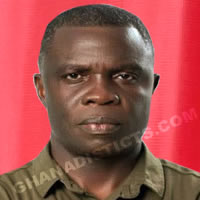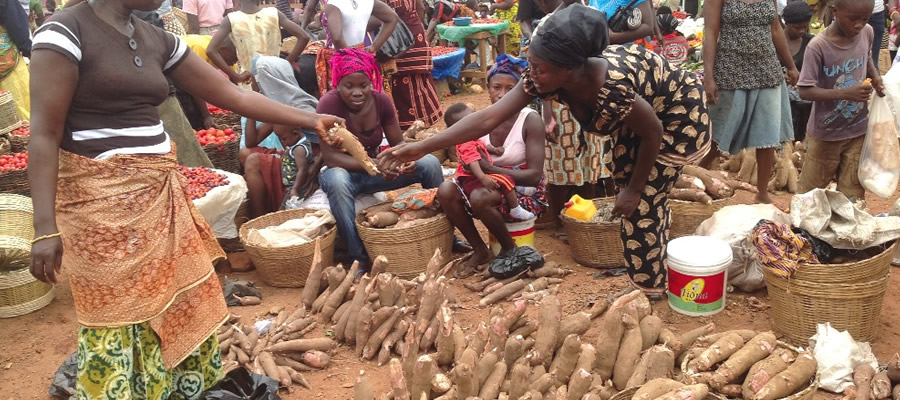

Environmental Sanitation
Solid Waste Management:
The main solid waste generated include street refuse, domestic refuse, and trade refuse which are generated at the central business district of Asesewa. The wastes are managed and disposed of by the Environmental Health Unit (EHU) in collaboration with Zoom Lion Ghana Limited. From time to time sensitization programmes are organized on how to manage household waste generated daily (store wastes in litter bins) prior to discharging into the public refuse containers.
The final disposal site is regularly sprayed and graded biannually. During the period under review NAMCOP (Zoomlion) in collaboration with the unit carried out disinfestations (fumigation) at all the container sites and all the public latrines.
Methods of Refuse Disposal
(1) Crude dumping
(2) Temporal storage (skip and roll-on containers at vantage points)
(3) Earth Burial and by
(4) Burning
Equipment
The Environmental Health Unit currently lacks the requisite sanitary equipment and tools for effective and efficient service delivery. Finding it difficult to deliver due to inadequate sanitary tools. Besides, Zoomlion Ghana Ltd needs to replace 4 of its communal refuse containers. There is the need for the district assembly as matter of urgency to procure 6 additional communal refuse containers to ease solid waste collection.
Liquid Waste Management:
The term liquid waste management refers to the collection; safe handling, treatment and disposal of all categories of none solid and non-gaseous waste and include human excreta (night soil and sewage), sullage, industrial effluents, and dry run-off. Generally, liquid waste management in the District isn’t much of a problem. The unit in collaboration with other stake holders (Assembly members and unit committee members) sensitize the mass on proper management of liquid waste. Public and house hold latrines were relatively managed well during the period under review.
Waste and Storm Water Drainage
Upper Manya Krobo District is drained naturally through primary, secondary and tertiary drainage systems and finally into streams and rivers. The problems associated with the drainage systems are; Rampant silting of drains during rains; Indiscriminate dumping of solid waste into public drains and streams. Drainage system in Asesewa Township is quite adequate to hold storm water during heavy down-pour. The Asesewa central market drainage which was under construction has been completed. Occasionally, choked drains are desilted.
Water Supply
The stony nature of land makes it difficult for the construction of hand dug wells. The 10 new boreholes are under construction. Communities along the Volta Lake mostly do open defaecation.
Operation and Maintenance of Water and Sanitation Facilities
The operations and maintenance of water and sanitation facilities is the responsibility of the Communities. The Communities however discharged this responsibility through the Water and Sanitation (WATSAN) Committees and the Water and Sanitation Development Boards (WSDB). The WATSAN’s/WSDB’s are constituted by the District Assembly based on the composition guidelines provided by Community Water and Sanitation Agency (CWSA). The Boards therefore derive their authority from the District Assembly.
The WATSAN’s/WSDB’s meet the communities regularly to render accounts, present their challenges and also to solicit suggestions from the communities. Funds for maintenance and repairs are obtained from the sale of water. In some cases, communities undertake fund raising to supplement what is realized from the sales.
As part of routine maintenance activities, the WATSANs/WSDB’s organize pump maintenance and repairs on a regular basis. The services of Area Mechanics are hired when the situation at hand is above the WATSAN/WSDB. On a monthly basis, the WATSANs organize site cleaning and site maintenance.
Date Created : 11/27/2017 5:05:40 AM










 facebook
facebook
 X
X
 Youtube
Youtube
 instagram
instagram
 +233 593 831 280
+233 593 831 280 0800 430 430
0800 430 430 GPS: GE-231-4383
GPS: GE-231-4383 info@ghanadistricts.com
info@ghanadistricts.com Box GP1044, Accra, Ghana
Box GP1044, Accra, Ghana